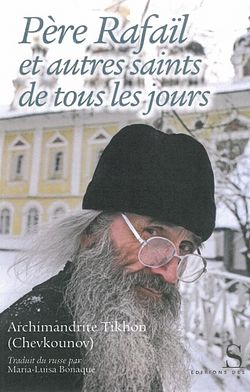 |
The well-known French Orthodox theologian, Jean-Claude Larchet, wrote a review of Fr. Tikhon’s book, which has been translated into English for us.
Archimandrite Tikhon (Shevkunov), born in 1958, is an important and influential figure in the Russian Orthodox Church not only because he is reputed to be the confessor of Vladimir Putin (who needs a confessor like everyone else) and Executive Secretary of the Patriarchal Council for Culture, but also because of his activity as abbot. Commissioned in 1994 by the Pskov-Caves Monastery, where he became a monk, to create a metochion in Moscow, he turned the previously abandoned Sretensky Monastery (on Lubyanka, not far from the infamous KGB building) into one of the most dynamic and radiant monasteries in the capital. This monastery, in the years since its inception (it became stravopegial in 1995), has managed to attract numerous people of all stripes and especially many young people, who today still make up the bulk of the crowd that gathers to attend liturgical services. Abbot Tikhon has founded a choir of high quality whose style is particularly characterized by its dynamic tempos. He has opened a seminary (of which he is rector) on the premises. He has created an Internet site, www.pravoslavie.ru, which remains the most important of the Russian Church, constituting a reference source on all areas of the life of the Orthodox Church (it contains, notably, the texts of the daily liturgical services along with iconographic illustrations and ad hoc musical arrangements). It is well anchored in Orthodox tradition, unlike the competing website Bogoslov.ru, which is heavily affected by Western influences. He has created a publishing house that is today the most important in Russia. He has also opened the best religious bookstore in Russia and the finest store for icons and religious art in Moscow.
His book, which has just been published in French under the title Père Rafaïl et autres saints de tous les jours [“Father Raphael and Other Everyday Saints”], has been a publishing event in Russia: not only did its presentation at the capital’s library attract more than 1,000 people, but it sold 1.2 million copies that day; it sat atop the best-seller lists of books in all categories for many months, and has received several awards, including best book of 2012. It has already been translated into English (Fr. Tikhon presented it at the Library of Congress), Greek, and Serbian, and for several months before its publication in French was the object of promotional campaigns on several Orthodox websites in French-speaking countries, including the excellent orthodoxologie.
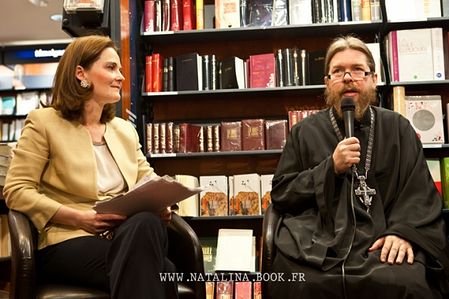 |
| Archimandrite Tikhon presenting the French edition of Everyday Saints at the libairie La Procure, Paris. |
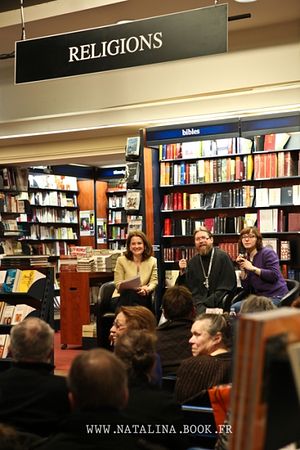 |
Fr. Tikhon has a particular spiritual aptitude for perceiving and valuing, with indulgence and love, the positive side of beings and situations. He also has a particular talent for doing so in a lively manner, with enthusiasm, humor and simplicity, which also accounts for the book’s success among the general public.




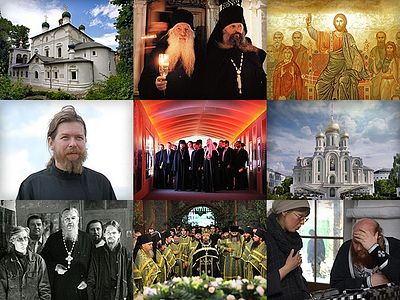

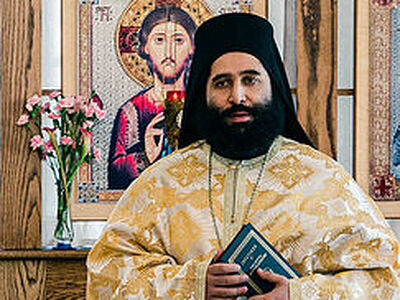
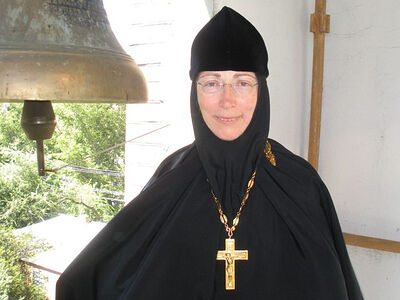
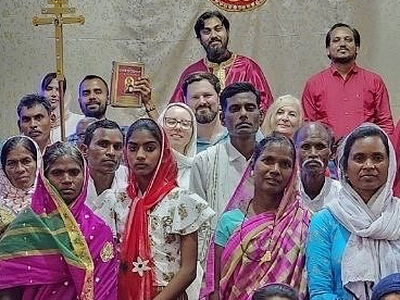

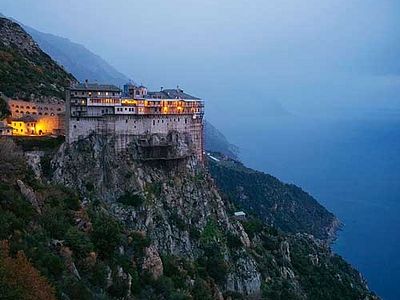

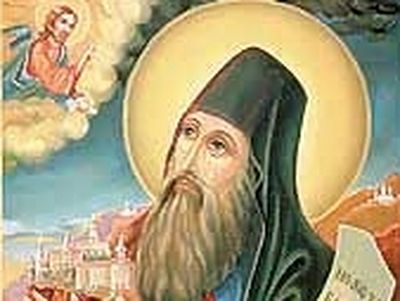




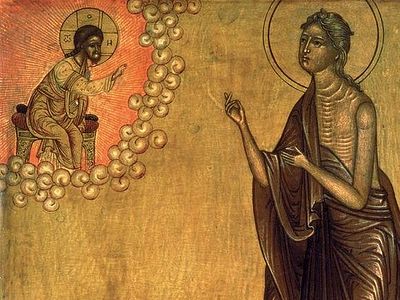

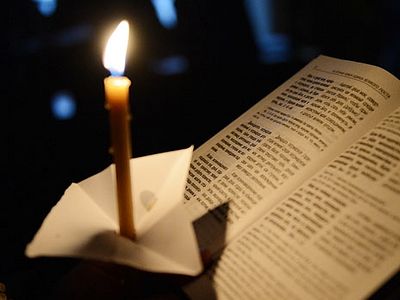



Un ami franзais